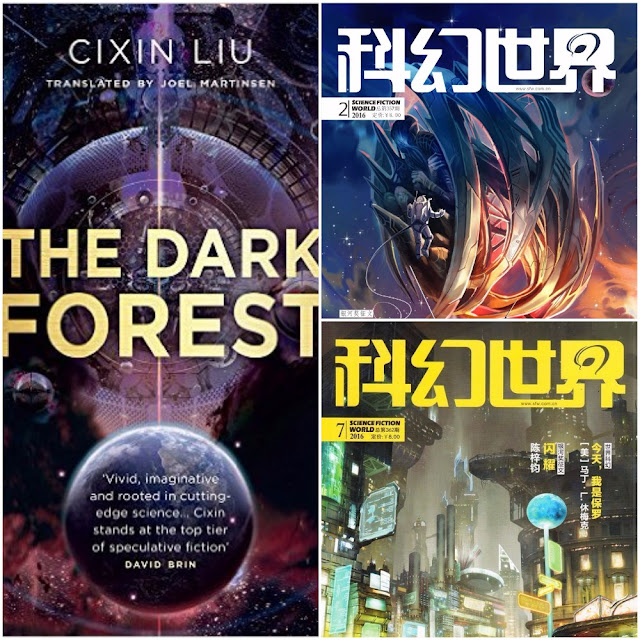
Dr Sarah Dodd (University of Leeds)
5pm, October 26, 2016 (Wednesday) FAMES Rooms 8 & 9
The history of science fiction in China reaches back to the beginning of the twentieth century, when utopian narratives of an idealised future played their part in calls for a revolution in fiction, and it has remained deeply entangled with the ideas and politics of a changing China. This talk will provide a whistle-stop tour of key movements in the history of Chinese SF, before considering the recent 'new wave' of writers, whose work is gaining awards and recognition not only in China but also in English translation. Looking at the work of Liu Cixin, whose Three Body trilogy is the first Chinese SF novel to be translated into English, and a number of other writers who are finding success in short stories, I will discuss the ways in which these works explore themes of hybridity, haunting and boundary-crossing – all tied in with ideas of contested space, whether of the body, society or the universe itself. Finally, to add another dimension to the discussion, I will look at the space of the SF field, considering the role of magazines, awards and fandom, as well as the key figure of author and translator Ken Liu, who has played an important role in bringing Chinese SF to English-speaking audiences, paving the way for recent ventures such as the collaboration between Clarkesworld magazine and Storycom International Culture – the first time an English-language genre magazine has made translation a regular part of every issue.
Speaker Dr Sarah Dodd is Lecturer in Chinese Studies at the University of Leeds. She teaches courses on Chinese literature, history and cinema, and her research focuses on representations of the monstrous in classical and contemporary Chinese fiction. She is co-organiser of the projects Writing Chinese: Authors, Authorship and Authority (http://writingchinese.leeds.ac.uk/) – which aims to create a network of authors, translators, academics and others working in the field of contemporary Chinese fiction – and Reading the Fantastic (http://reading-the-fantastic.tumblr.com/), which brings together early career researchers looking at various aspects of the intercultural fantastic.
No comments:
Post a Comment